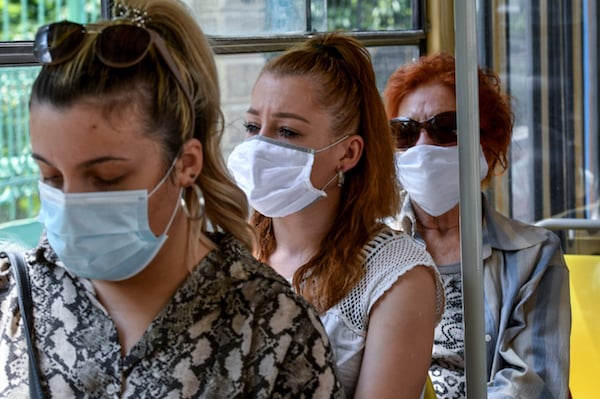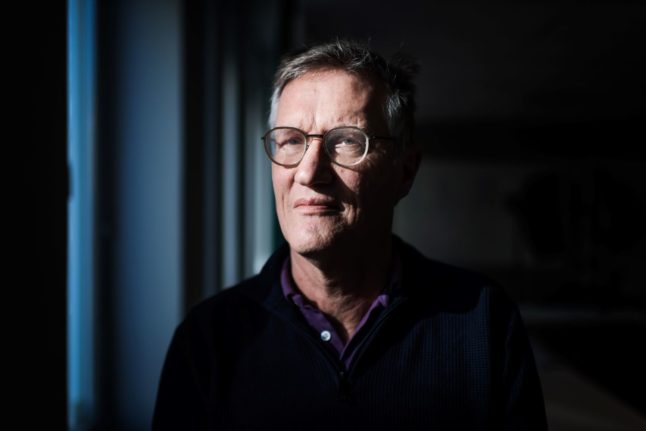As the Swedish death toll from Covid-19 hits a record number, the updated advice on face masks comes just a day after the national health agency recommended that more healthcare workers wear masks too.
On Wednesday December 30, Sweden announced that it had registered 8,846 new Covid-19 cases and 243 deaths, the highest in Sweden since the pandemic began.
However, the health agency also said that statistics over the Christmas period could be skewed because of less testing and delays in reporting deaths.
“We know that public transport means situations where congestion can be difficult to avoid … then mouth protection can be useful,” state epidemiologist Anders Tegnell told Reuters.
The updated guidance from Sweden’s health authority and Tegnell, who was the main advocator for not locking down, marks a change in strategy for the country.
Throughout the duration of the pandemic, Tegnell has said that there is poor evidence of the effectiveness of masks and also added that they might be used as an excuse not to isolate when ill with the virus.
Sweden’s total death toll stands at 8,727. Its death rate per capita is several times higher than that of its Nordic neighbours, but lower than in several European countries, which opted for lockdowns and had stricter measures in place.



 Please whitelist us to continue reading.
Please whitelist us to continue reading.
“Masks might be used as an excuse not to isolate when ill with the virus”. That’s like saying people wearing seat belts might use that as an excuse to drive faster, so we’d better not make them mandatory.
Insane, even by the by now legendary standards of FHM.
It’s all down to people’s mentality and the strength and intelligence of their respective governments, irrespective of what precautions we are taking.
I lived and worked in Sweden for several and am surprised at the amount of disregard and non-compliance the Swedes have about this pandemic.
Take the UK for example. A poll was taken AFTER the Xmas feeble restrictions and 80% of people polled said they should have had much much tighter restrictions to keep the “knob head” percentage of UK citizens under control. That didn’t happen because of shit for brains johnson and his collection of brats wanted to feed their fat faces with turkey and such likes. I can see no other reason for NOT bringing in stronger quarantine restrictions.NOW LOOK AT US!!!!!
Buffoon JOHNSON HAS REPEATEDLY SHOWN HIS lack of leadership qualities consistent with his lies and false promises from Brexit, PPE, Track and Trace etc to lockdown measures and vaccine distribution. Starmer is a disgrace to all labour voters for being such a weak and ineffective opposition leader to allow Covid Boris to get away with it.
So my dear Swedes make sure every Swedish minister reads about bumbling boris and his Zombie mates like tosser Witty and co. in getting Swedens covid statistics down.